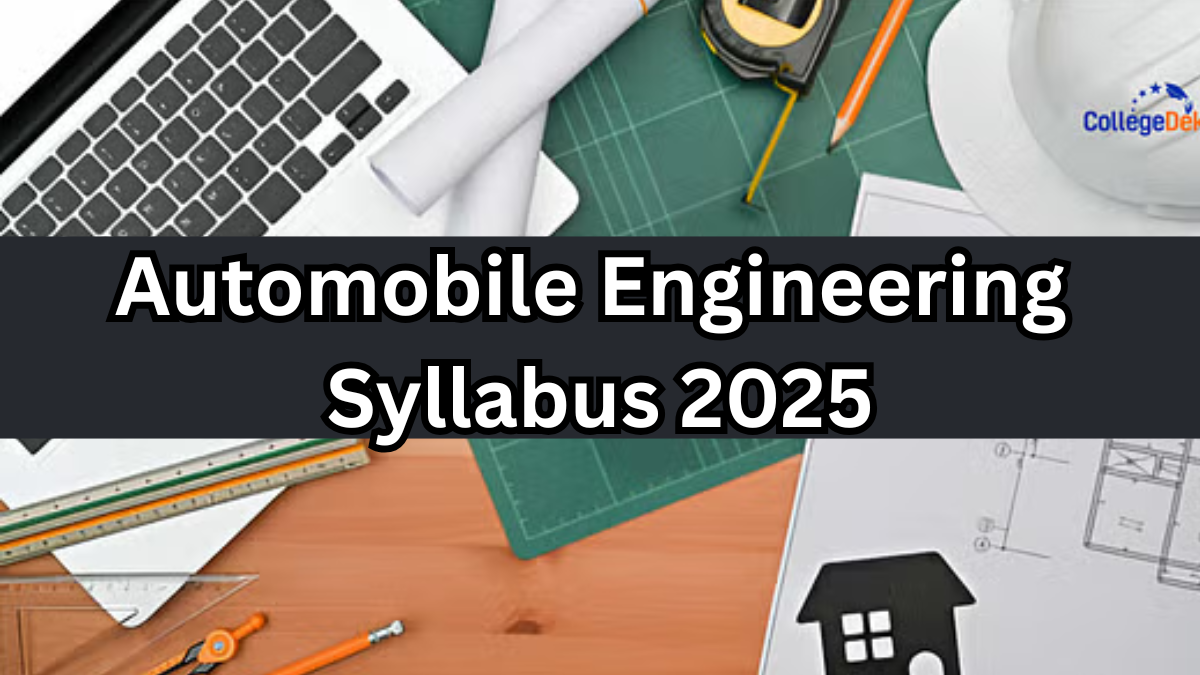If you’re aiming to build a successful career in the automotive world, understanding the Auto engineering syllabus is key. The curriculum for B.Tech mechanical students has undergone major 2025 updates, focusing more on electric mobility, sustainability, and real-world applications.
Whether you’re a fresher or in your final year, here’s a semester-by-semester breakdown of what to expect.

Why This Syllabus Matters in 2025
The automotive sector is evolving rapidly, and so is the syllabus. From electric vehicles to AI-powered automation, the industry demands engineers who are updated and skilled.
Key Highlights of 2025 Updates
-
Introduction of EV and hybrid vehicle systems
-
Strong focus on CAD, CAM, and simulation tools
-
Inclusion of green transport and emission norms
-
Industry-based training and projects for real-world exposure
Semester-Wise Breakdown: Auto Engineering Syllabus
Semesters 1 & 2 – Building the Foundation
| Subject Area | Topics Covered |
|---|---|
| Engineering Basics | Mathematics, Physics, Chemistry |
| Computer Skills | C Programming, Basic Software Tools |
| Mechanics & Drawing | Engineering Mechanics, Graphics, Workshop |
| Labs | Physics Lab, Chemistry Lab, Engineering Drawing |
Focus: Developing a strong base in science and engineering principles.
Semesters 3 & 4 – Mechanical Core Subjects
| Subject Area | Topics Covered |
|---|---|
| Thermodynamics | Applied Thermodynamics, Heat Transfer |
| Manufacturing | Machining, Casting, CNC, Welding |
| Materials Science | Metallurgy, Testing Techniques |
| Strength of Materials | Stress-Strain Theory, Beam Analysis |
| Intro to Automotive | Vehicle Dynamics, Suspension Basics |
| Labs | Materials Lab, Dynamics Lab, Fluid Mechanics |
Focus: Deep dive into mechanical fundamentals relevant to automotive engineering.
Semesters 5 & 6 – Specialization Phase
| Subject Area | Topics Covered |
|---|---|
| IC Engines | Engine Design, Emissions, Fuel Injection Systems |
| Vehicle Body Design | Crash Safety, Frame Design, Aerodynamics |
| Automotive Electricals | Sensors, Batteries, Lighting Systems |
| Design & Software Tools | AutoCAD, SolidWorks, ANSYS |
| Electives | EV Technologies, Robotics |
| Practicals & Workshops | Mini Projects, Industry Visits |
Focus: Applied knowledge and specialization in auto components and design.
Semesters 7 & 8 – Advanced Tech & Career Prep
| Subject Area | Topics Covered |
|---|---|
| Vehicle Testing | Road Tests, NVH Analysis, Performance Evaluation |
| Autonomous Mobility | AI in Vehicles, Sensors, Lane Assistance Systems |
| Sustainable Engineering | Hybrid & Electric Vehicle Systems, Emission Control |
| Internship & Training | 6–8 Week Industry Internship |
| Capstone Project | Final Year Project with Industrial Mentorship |
Focus: Innovation, advanced technology, and career-readiness.
Skills You’ll Gain
-
CAD-based modeling and 3D simulation
-
Deep understanding of EV and hybrid systems
-
Hands-on automotive component experience
-
Analytical thinking and design problem-solving
-
Industrial communication and teamwork
Career Paths After B.Tech in Auto Engineering
Once you’ve completed your degree with this industry-aligned Auto engineering syllabus, several career opportunities open up:
-
Automotive Design Engineer
-
Vehicle Testing & Evaluation Engineer
-
EV System Developer
-
CAD/CAM Analyst
-
Quality and Emissions Engineer
-
R&D Associate in Top OEMs
FAQs
Q1. What are the key 2025 updates in the Auto Engineering Syllabus?
The 2025 updates include EV system design, hybrid engines, simulation software training, and autonomous vehicle tech to meet the current automotive industry demands.
Q2. Is this course part of the B.Tech mechanical stream?
Yes, automobile engineering is a specialization offered within the B.Tech mechanical degree at most Indian and international universities.
Q3. Are electric vehicles included in this updated syllabus?
Yes. With EVs being the future of transport, the Auto engineering syllabus now includes complete modules on electric powertrains, batteries, and sustainability.
Q4. Will this course prepare me for global automotive roles?
Absolutely. The revised syllabus includes practical tools, advanced tech training, and exposure to global standards, making it suitable for international opportunities.
Click here to learn more